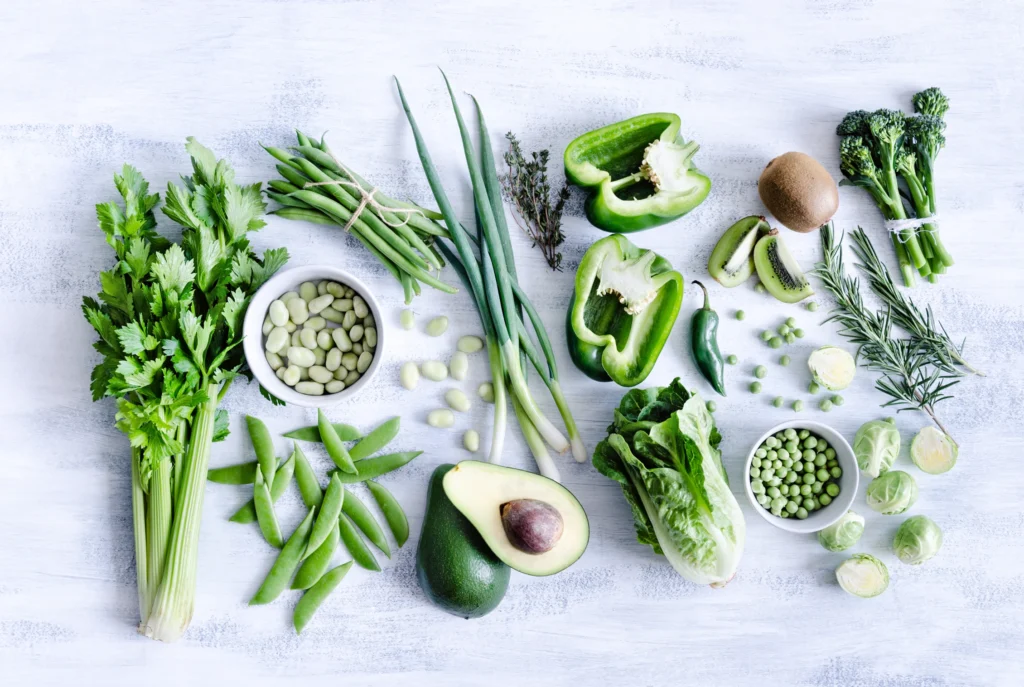Your body needs a variety of vitamins and minerals to support its processes and function properly. Everything from growth and immune response to hormone regulation and nerve functioning relies on the micronutrients you get from your diet.

Your vitamin and mineral needs change throughout your life cycle. For example, those hoping to become pregnant require more folate to support proper fetal development, and elderly individuals need more vitamin D as their bodies are less effective at synthesizing it and may spend less time in direct sunlight.
A balanced diet of whole foods usually contains adequate amounts of vitamins and nutrients. However, in certain circumstances, a supplement may help ensure that needs are being met.
Nutrient Types
Vitamins are nutrients that support the body’s internal regulation and must be obtained through the diet. There are 13 essential vitamins, which can be classified into two types:
Minerals must also be obtained from the diet for optimal health. Minerals help with a variety of functions in the body, including everything from providing structure in the bones to supporting a healthy heart. There are three classifications:
Nutritional Status
When it comes to your vitamin and mineral status, these are a few terms you should know:
A nutrient analysis test can determine your nutritional status. If interested, ask your healthcare practitioner for a blood test to check your specific micronutrient levels.

Vitamins and minerals your body needs to function at its best and the food sources.
Fat-Soluble Vitamins
Vitamin A
Vitamin A is essential for growth, cell differentiation, immunity, sexual maturity, and healthy vision. It may also reduce the risk of cancer. Night blindness may occur if there is a deficiency in this vitamin. Vitamin A is found in some foods, but beta-carotene, which is found in more foods can be converted to vitamin A in the body.
Food sources: egg yolks, milk, butter
Vitamin D
Vitamin D is necessary for bone health. Research has shown that vitamin D may help reduce the risk of obesity, depression, and certain types of cancer and may help slow the progression of multiple sclerosis. Vitamin D can be acquired in two ways: The body is able to synthesize it upon sun exposure and it can be consumed through the diet. Individuals who life in more northern areas of the globe may have a difficult time getting adequate vitamin D due to the limited sun exposure, especially during color months. High-quality multivitamins contain approximately 50-1,000 international units (IUs) of vitamin D in each capsule or tablet. If you’re considering supplements, check with your primary care physician before starting a regimen.
Food sources: eggs, liver, fatty fish, butter, whole milk, some mushrooms
Vitamin E
Vitamin E functions as an antioxidant in the body. As an antioxidant, it helps support healthy aging and immunity. Vitamin E may also help reduce the risk of cardiovascular disease.
Food sources: sunflower seeds, almonds, wheat germ, vegetable oils, peanuts, spinach, avocado
Vitamin K
Vitamin K is essential for blood clotting, so individuals who take anticoagulants may need to be careful about changing the amount of vitamin K they get in their diet. Vitamin K can also be produced from the intestinal bacteria as part of the digestive process.
Food sources: spinach, kale, broccoli, cabbage, colards, beet greens, turnip greens, Swiss chard
Water-Soluble Vitamins
Thiamin (B1)
Thiamin is essential for proper metabolism. More specifically, this B vitamin is necessary for the metabolism of carbohydrates. A deficiency in thiamin causes a condition called beriberi, which can impact muscular function and may cause cardiovascular issues. Deficiencies in thiamin are typically rare, but individuals suffering from alcoholism are most at risk.
Food sources: whole grains, brewer’s yeast, potatoes, legumes, nuts, seeds, pork, wheat germ, oatmeal
Riboflavin (B2)
Riboflavin is also essential for proper metabolism. A deficiency in riboflavin may lead to a condition called photophobia, and increased sensitivity to light. However, deficiencies of this particular vitamin are rare.
Food sources: dairy, beef, eggs, almonds, brewer’s yeast
Niacin (B3)
Niacin, another essential vitamin for proper metabolism, is present in both plant and animal foods, though they contain different forms. Typically, niacin is obtained from the diet, but a small amount can actually be synthesized in the body by converting the amino acid tryphophan to a unable form of niacin. A deficiency in niacin will manifest in a condition called pellagra, which can cause skin issues, gastrointestinal tract issues, and confusion, if not treated, it can be fatal.
Food sources: potatoes, brewer’s yeast, mushrooms, cottage cheese, chicken, liver, most fish, turkey, pork
Pantothenic Acid
Pantothenic acid is abundant in both plant and animal foods. Its prefix, pan-, means “all” – which helps emphasize how many food sources it can be found in. As you might imagine, deficiencies in this vitamin are rare
Food sources: whole grains, legumes, avocado, potatoes, tomatoes, broccoli, egg yolks, chicken, beef

Vitamin B6
Vitamin B6 is essential for proper metabolism, particularly of protein. It is involved in a variety of enzymatic reactions throughout the body and supports immune function. Vitamin B6 is also used in the process of forming neurotransmitters and hemoglobin.
Food sources: liver, chicken, salmon, potatoes, avocado, wheat bran, chickpeas, navy beans, pistachios, walnuts
Biotin
Biotin is essential for proper metabolism. Although a deficiency in this vitamin is rare, frequently consuming raw eggs can block its absorption.
Food sources: brewer’s yeast, legumes, egg yolks, nuts, whole grains, organ meats
Folate
Folate assists with cell turnover, which is why it’s especially important for those hoping to become pregnant. A folate deficiency has been shown to lead to neural tube defects in fetuses. A deficiency may also lead to decreased immunity and a particular form of anemia where blood cells appear enlarged. Folate found in supplements is called folic acid.
Food sources: asparagus, edamame, spinach, okra, broccoli, lettuce, avocado, turnip greens, liver, black-eyed peas
Vitamin B12
Vitamin B12 supports nerve function and healthy blood cells. Proper vitamin B12 absorption relies on intrinsic factor (IF), which is produced in the stomach. With old age, IF production decreases, affecting the proper absorption of vitamin B12. Individuals who follow vegetarian and vegan diets are more likely to be at risk for a deficiency. Vitamin B12 stores can meet the body’s demands for a time, but those who avoid animal-based foods should consider a supplement to reduce the deficiency risk.
Food sources: liver, oysters, clams, salmon, tuna, trout, beef, eggs, fortified foods
Vitamin C
Vitamin C acts as a powerful antioxidant in the body. In addition to reducing oxidation and supporting immunity, vitamin C is known to help boost the absorption of iron from plant sources. Deficiencies in vitamin C result in scurvy, which historically affected sailors who had been out to sea for many months without access to foods containing vitamin C.
Food sources: citrus fruits, red pepper, kiwi, broccoli, Brussels sprouts, potatoes, cranberries, strawberries, cauliflower
Major Minerals
Calcium
Calcium is the most abundant mineral in the body – most of which is located in the bones. In addition to offering structural support through the bones, calcium helps support muscle contraction and pH balance. Calcium absorption is boosted by vitamin D. A deficiency in calcium can lead to osteomalacia, the precondition of osteoporosis.
Food sources: milk, yogurt, cheese, collard greens, bok choy, kale, spinach, tofu, sardines, clams
Chloride
Chloride acts as an electrolyte. The kidneys regulate chloride in the body.
Food sources: salt (sodium chloride), sea vegetables, olives
Magnesium
Magnesium is essential for bone health and it plays an important role in a variety of functions, including DNA replication, metabolism, and protein synthesis. Since this mineral is present in a variety of foods, a deficiency is fairly rare but may lead to issues with muscle function.
Food sources: spinach, tofu, peas, almonds, cashews, whole grains, Swiss chard, barn cereal, wheat germ, black beans, azuki beans, kidney beans, pumpkin seeds, almond, flaxseeds, cocoa.

Phosphorus
Phosphorus is another abundant mineral in the body, most of which can be found in the bones. The kidneys regulated circulating phosphorus, so individuals who have kidney disease may need to limit the amount of phosphorus they consume. In addition to supporting bone health, this mineral is also found in cell membranes (providing structure) and helps regulate pH.
Food sources: yogurt, milk, cheese, tuna, sunflower seeds, meat poultry, eggs, sardines, mushrooms, pumpkin seeds, lentils, tempeh, potatoes.
Potassium
Potassium acts as an electrolyte in the body and plays a role in maintaining fluid balance. This mineral is widely available in fruits and vegetables but is notoriously low in the Standard American Diet. Potassium helps reduce the risk of hypertension and cardiovascular disease.
Food sources: bananas, potatoes, squash, tomatoes, peaches, oranges, yogurt, milk.
Sodium
Sodium acts as an electrolyte, and deficiencies are rare – especially in the United States, where sodium is added to most processed foods. Excessive sodium consumption has been shown to contribute to hypertension.
Food sources: salt (sodium chloride), processed foods, ham, seafood, eggs, milk, celery
Sulfur
Protein-rich foods are typically a good source of sulfur as it can be found in several amino acids (the building blocks of proteins).
Food sources: eggs, beef, poultry, fish
Trace Minerals
Chromium
Chromium is only necessary in small amounts in the diet and has been shown to support insulin sensitivity.
Food sources: broccoli, potatoes, ham, egg yolks, garlic, red wine
Copper
Copper is only necessary in small amounts in the diet. It supports several different enzymatic reactions. A deficiency in copper may lead to poor heart health.
Food sources: cashews, sunflower seeds, prunes, sesame seeds, soybeans

Fluoride
Fluoride is essential to the health of bones and teeth and is only necessary in small amounts in the diet. To reduce the prevalence of tooth decay, fluoride may be added to the water supply.
Food Sources: some seafood, gelatin, tea
Iodine
Iodine helps supports thyroid health and production of its hormones and is only necessary in small amounts in the diet. A deficiency in this important mineral can lead to an enlargement of the thyroid gland or goiter. Similar to selenium, iodine content in food is largely dependent on the environment where the food is produced. To help reduce deficiencies, iodine is often added to salt
Food sources: iodinzed salt, haddock, cottage cheese, eggs, milk, yogurt, co
Iron
Iron is essential for healthy red blood cells. It is found in both animal (heme form) and plant (non-heme form) sources; iron from animal sources is more easily absorbed. Those who menstruate have a higher recommended intake of iron, due to losses that occur as part of the menstrual cycle. A deficiency in iron can result in anemia.
Food sources: soybeans, spinach, liver, white beans, lima beans, oysters, tofu, lentils, kidney beans, blackstrap molasses
Manganese
Manganese is found in a variety of plant foods and helps support carbohydrate metabolism as well as the formation of cartilage. it is only necessary in small amounts in the diet.
Food sources: brown rice, spinach, lima beans, pineapple, almonds, pinto beans

Selenium
Selenium acts as a powerful antioxidant in the body. Selenium content of food is linked to the selenium content present in the soil where it’s grown, so it may vary widely in the same foods. Selenium supports immunity and may help reduce the risk of cancer.
Food sources: Brazil nuts, mushrooms, couscous, yogurt, cottage cheese, eggs, tofu, chia seeds, oysters, salmon, sardines, crab, chicken, pork, beef.
Zinc
Zinc supports enzymatic reactions necessary for everything from DNA replication to protein digestion. It supports proper growth and development; thus recommended intakes are higher for those breastfeeding. Zinc is also an important component of immunity and support wound healing. A deficiency in zinc can lead to a condition that reduces a person’s ability to taste.
Food sources: cashews, sunflower seeds, oysters, pumpkin seeds, beef, chickpeas, cocoa, lobster.
I hope these information will help you stay healthy and living happily from everyday food you intake.
Pitsuda
